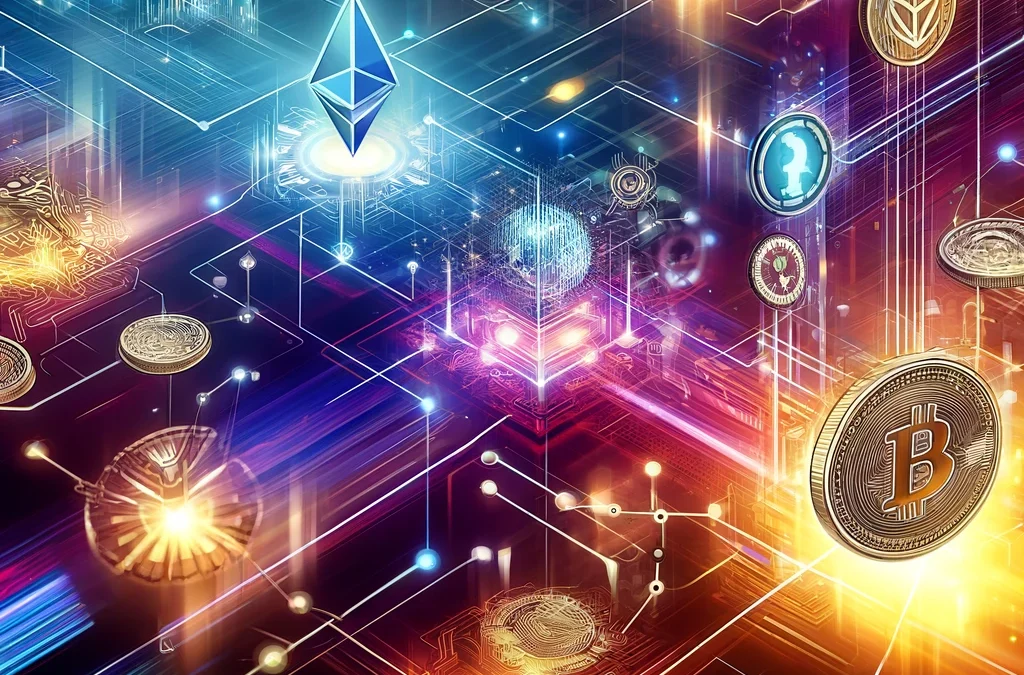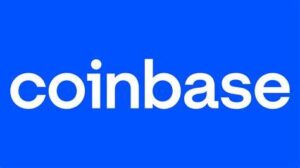DeFi and Token Swaps: Unlocking the Power of Decentralized Finance
Decentralized Finance, or DeFi, is one of the most transformative innovations in the financial world today. By leveraging blockchain technology, DeFi is reshaping how we think about money, banking, and financial services, empowering users to access decentralized alternatives to traditional financial institutions. At the heart of this revolution are token swaps, a process that allows users to seamlessly exchange one cryptocurrency for another without relying on a central authority or intermediary.
In this article, we’ll explore how DeFi and token swaps are unlocking new financial possibilities, offering greater autonomy, lower fees, and more security for users. We’ll also delve into the underlying technology, key use cases, and the future potential of DeFi-driven token swaps.
What is DeFi?
DeFi, short for decentralized finance, refers to a broad ecosystem of financial services and applications built on blockchain networks like Ethereum. Unlike traditional financial systems that rely on banks, brokers, and intermediaries, DeFi applications use smart contracts to automate transactions, allowing users to interact directly with one another in a trustless and transparent environment.
Here are a few key features of DeFi:
- Permissionless Access: Anyone with an internet connection and a crypto wallet can access DeFi services without needing approval from a central authority.
- Non-Custodial Services: DeFi users maintain control over their funds throughout the transaction process, as their assets are stored in personal wallets, not with a third party.
- Transparency: All transactions and smart contracts are recorded on the blockchain, providing an open, auditable ledger.
- Programmable Financial Services: With DeFi, financial products like loans, savings accounts, and insurance policies can be created and executed automatically through code.
In essence, DeFi aims to provide the same services as traditional finance—such as lending, borrowing, saving, and trading—without the need for intermediaries, thereby offering greater efficiency and inclusivity.
What Are Token Swaps?
At the core of decentralized finance is the ability to seamlessly swap tokens between different cryptocurrencies, commonly referred to as a token swap. Token swaps allow users to exchange one cryptocurrency for another directly from their wallets without relying on centralized exchanges like Coinbase or Binance.
Here’s how token swaps work:
- Liquidity Pools: A liquidity pool is a collection of tokens provided by liquidity providers (users who stake their tokens in exchange for a share of transaction fees). When a user initiates a swap, the decentralized exchange (DEX) pulls from this pool to complete the transaction.
- Smart Contracts: Instead of relying on a centralized third party to oversee the trade, a smart contract (self-executing code on the blockchain) automatically facilitates the token swap. These contracts are transparent and enforce the terms of the trade.
- No Middlemen: In traditional exchanges, users deposit funds into a centralized platform, which then executes trades on their behalf. In token swaps, users retain full control over their assets, trading directly from their wallets without the need for intermediaries.
Token swaps are fast, cost-efficient, and offer greater security than traditional exchanges. They are the backbone of decentralized exchanges (DEXs) like Uniswap, SushiSwap, and JuicySwap, and provide the foundation for much of the DeFi ecosystem.
How Token Swaps Empower Users in DeFi
Token swaps have become an essential part of the DeFi ecosystem, offering several advantages to users:
1. Decentralization and Control
With token swaps, users don’t have to deposit their assets into a centralized platform. Instead, they retain complete control over their assets throughout the transaction process. This eliminates the risks associated with custodial services, such as hacks, mismanagement, or the loss of funds due to platform failures. Users interact with decentralized protocols via their crypto wallets, maintaining full ownership and control.
2. Instant Liquidity
Liquidity pools in DeFi ensure that tokens are readily available for swaps, allowing users to trade assets without waiting for an order to be matched. Unlike traditional exchanges, which rely on order books to match buyers and sellers, liquidity pools ensure that trades are executed instantly, providing faster access to assets.
3. Lower Fees
One of the biggest advantages of token swaps is the reduction in fees. Traditional exchanges charge transaction fees, withdrawal fees, and even deposit fees, which can add up over time. In DeFi, fees are often limited to the gas fees required to process transactions on the blockchain, and liquidity providers earn a small percentage from each trade as a reward for contributing to the pool. This results in lower costs for the average user.
4. Accessibility and Inclusivity
DeFi and token swaps open up financial services to anyone with an internet connection. There’s no need to have a bank account or go through lengthy verification processes like Know Your Customer (KYC). This makes DeFi services accessible to people in countries with limited banking infrastructure, as well as those seeking greater financial autonomy and privacy.
5. Anonymity and Privacy
Unlike traditional exchanges that require personal identification and KYC processes, decentralized exchanges (DEXs) often allow users to swap tokens anonymously. Users interact with the DEX directly through their crypto wallets, keeping their identities private while conducting trades.
Key Use Cases of Token Swaps in DeFi
Token swaps have unlocked new use cases and opportunities within the DeFi space. Here are some of the most significant ones:
1. Decentralized Trading
Token swaps facilitate decentralized trading without the need for intermediaries. Users can trade a wide variety of tokens directly from their wallets on decentralized exchanges (DEXs) like Uniswap, PancakeSwap, and SushiSwap. With no need to create accounts or deposit funds into a centralized entity, decentralized trading is more efficient, secure, and transparent.
2. Yield Farming and Liquidity Mining
In DeFi, users can earn passive income through yield farming or liquidity mining, where they provide liquidity to a DEX in exchange for rewards. When users stake their tokens in a liquidity pool, they receive a portion of the trading fees generated by swaps that occur within the pool. Yield farming has become a popular method for crypto holders to earn additional returns on their investments while contributing to the overall liquidity of the market.
3. Cross-Chain Token Swaps
Many DeFi projects are exploring cross-chain swaps, where users can exchange tokens across different blockchain networks. This allows for greater interoperability between blockchains, which can help solve the issue of liquidity fragmentation across different networks. For example, cross-chain swaps enable users to swap assets between Ethereum and Binance Smart Chain without going through centralized bridges or intermediaries.
4. Portfolio Diversification
Token swaps allow users to diversify their crypto holdings easily. Instead of relying on centralized exchanges to convert assets, users can swap tokens quickly and efficiently across a wide variety of assets. This empowers investors to balance their portfolios, mitigate risks, and seize opportunities within DeFi markets without relying on intermediaries.
How Token Swaps and DeFi Are Transforming Traditional Finance
Token swaps and the broader DeFi ecosystem represent a fundamental shift away from the traditional financial model. DeFi offers a decentralized alternative to centralized banking, where users can lend, borrow, trade, and earn interest on their assets without the need for banks, brokers, or financial institutions.
1. No Central Authority
In traditional finance, banks and financial institutions serve as intermediaries that govern transactions, charge fees, and often impose limits on accessibility. With DeFi, smart contracts take over these functions, providing trustless services where code governs the transactions. This decentralized approach democratizes access to financial services, reduces fees, and increases transparency.
2. Borderless Transactions
Token swaps allow users to trade assets on a global scale, regardless of borders or regulatory restrictions. In contrast, traditional financial systems are heavily regulated, with limits on cross-border transactions, remittances, and international payments. DeFi and token swaps enable borderless transactions that are executed on public blockchains, accessible to anyone around the world.
3. Transparency and Security
With traditional banks, customers often have limited visibility into how their funds are used or managed. In contrast, all transactions in DeFi are transparent and visible on the blockchain, giving users complete visibility into the flow of funds. Additionally, because token swaps are conducted via smart contracts, the system reduces human error and the risks associated with centralization, such as fraud or mismanagement.
The Future of DeFi and Token Swaps
As the DeFi space continues to evolve, token swaps will likely play an increasingly central role in the decentralized economy. With ongoing advancements in blockchain technology, we can expect to see several key developments:
- Cross-Chain Interoperability: As more blockchains emerge, cross-chain token swaps will become more crucial to ensuring seamless transfers between different networks. Platforms like Polkadot and Cosmos are already working on creating interoperable blockchain ecosystems.
- Layer 2 Scaling Solutions: As DeFi grows in popularity, congestion on major blockchains like Ethereum has led to high gas fees and slower transactions. Layer 2 solutions, such as Optimistic Rollups and zk-Rollups, will help reduce these costs and make token swaps even more efficient.
- Decentralized Finance for Everyone: As more people become aware of the benefits of decentralized finance, we can expect DeFi to become more accessible to everyday users. With simplified interfaces and better educational resources, token swaps will become as common and intuitive as using an ATM.
Conclusion
DeFi and token swaps are unlocking the future of finance, enabling users to trade and manage assets in a decentralized, transparent, and secure manner. By removing intermediaries and placing control directly into the hands of users, DeFi and token swaps are democratizing access to financial services, offering a more inclusive and open financial ecosystem. With innovations like smart contracts, liquidity pools, and cross-chain compatibility, DeFi platforms provide a seamless and efficient way to trade, lend, borrow, and earn in ways that traditional financial systems cannot match.
As DeFi continues to grow and mature, the potential for token swaps to further revolutionize the financial landscape is immense. From reducing costs and increasing security to enabling global, borderless transactions, these tools are paving the way for a future where financial freedom and autonomy are accessible to everyone. Embracing DeFi and token swaps today means participating in the future of finance, where decentralization empowers individuals and fosters a more transparent, secure, and efficient global financial system.


